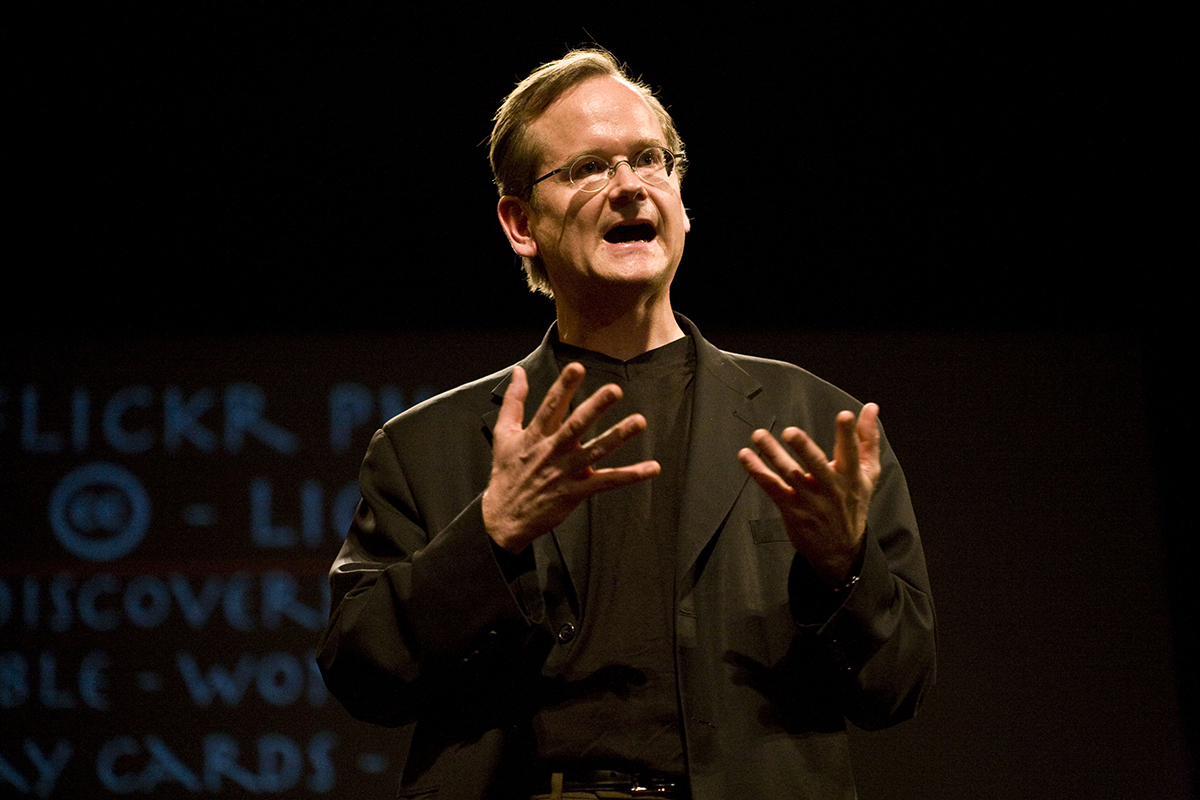Larry Lessig: OK, If You Elect Me President, I Won’t Resign

Larry Lessig photo by Robert Scoble on Flickr/Creative Commons
Harvard professor Larry Lessig now admits that his long-shot run for president had a fatal flaw. Last night, he changed his strategy: if elected to the White House, he says, he’ll serve a full term after all.
Larry Lessig: I'm All In http://t.co/sAtxIWKu0X
— Lessig 🇺🇦 (@lessig) October 17, 2015
Until today, Lessig was running for president on a single issue: big money’s corruption of the political system. He wants to pass a sweeping proposal, the “Citizens Equality Act,” that would curb wealthy donors’ role in political campaigns, end gerrymandering, and enhance voting rights.
To make himself a pure “referendum president,” with a clear mandate to pressure Congress to enact his plan, Lessig promised to resign as soon as he signed his proposal into law. Now he’s dropping that last promise. It hurt him more than it helped.
“People understood the corruption bit; they were willing to assume the reform would fix it,” Lessig writes on TheAtlantic.com. “But they didn’t get the resigning bit… it weakened the credibility of the campaign.”
Opinion leaders weren’t buying Lessig’s idea of a president who’d hand over power to his vice-president once he accomplished a single goal. “Because of Lessig’s promised departure, he becomes an after-thought in his own campaign,” wrote Washington Post columnist Jonathan Capehart. “When I vote for president, I’m voting for someone who wants the job and the awesome responsibility that goes with it. Someone who knows the presidency is not a single-issue domain.”
Voters agreed, according to Lessig’s own poll. “The resignation idea was a total bust,” he writes. “No one liked it. At all. But the idea of an outsider making fundamental reform the central issue of the campaign blew the race apart.”
So last night, Lessig announced in his Atlantic essay that he’ll serve a full term if elected. He rolled out position statements on 15 issues on his website, including criminal justice reform and marijuana legalization, an end to NSA surveillance of American citizens, progressive taxation and support for the Iran nuclear deal. He calls the Citizens Equality Act “the first reform” – the one that makes the others more achievable.
Lessig’s making this switch because he’s already running out of time to make a mark on the 2016 election. He wasn’t invited to Tuesday’s Democratic presidential debate – a major setback for a long-shot candidate trying to reach a wider audience. Yet Lessig raised $1 million this summer—which means he out-fundraised Jim Webb and Lincoln Chafee, two former U.S. senators who did make the debate, as well as four Republican presidential candidates, according to campaign finance reports filed Thursday.
Even long shots have to play the game. Even candidates running to advance a cause and change the national debate have to present themselves as kind-of, plausibly presidential. Lessig figured that out.

